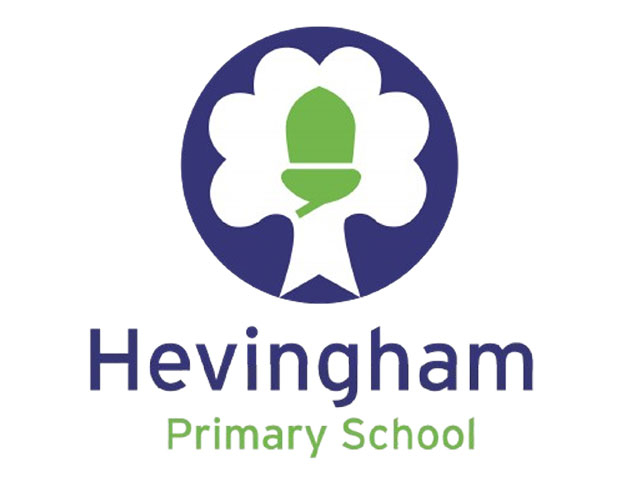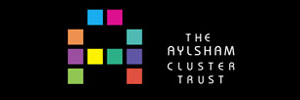Intent–
At Hevingham and Marsham Primary School Partnership, our RE curriculum is designed with three complimentary parts at its heart – Theological Learning, Philosophical Learning and Human/ Social Sciences. For children to achieve as much as they can in the next phase of their education, as well as becoming religiously literate tolerant and respectful citizens, we organise our RE programme of study with these three parts in roughly equal measure.
To become a successful learner, our children learn a wide range of theological concepts, including creation stories, founding of major faiths, and the rules and sources of authority in main world faiths or world views. This theological learning takes the form of new vocabulary, studying holy books, and considering how celebrations and deities may vary widely. We aim to produce learners who can compare and contrast world views with honesty and respect, with a deep understanding of the concepts for the main world views.
To become confident and healthy individuals within RE, our children discuss the concepts from many world views, and apply philosophical ideas of truth, perception and reason to what they learn. Drawing conclusions during discussion is an important part of our RE lessons, with many units focussing on “What can… teach us about…” – prompting the children to think around belief and tradition and what it means to others.
Finally, as part of our RE curriculum, we focus strongly on how others in the world apply their religion or world view, and the impact on single people, communities, and society. This study of Human/ Social Sciences gives children in our schools wide and ranging understanding of how diverse communities apply their beliefs and how it impacts on them and others. This, again, provides opportunities for our children to learn tolerance, respect and genuine curiosity about how people life their lives around the world.
By planning and delivering busy and interactive RE learning, we aim to produce curious, thoughtful, tolerance and religiously literate children, who not only achieve the aims of the curriculum but become confident and inclusive citizens, with strong spiritual, moral, social and cultural experiences and understanding.
Implementation–
Our teaching of RE in each class is weekly during terms with a unit attached. Staff follow our programme of study which is based on the Norfolk Agreed Syllabus (2019) created by the Norwich Diocese approximately an hour for each lesson. In some classes, this will be split in half and rotated with a different year group. All children receive regular and progressive RE teaching, from EYFS to Year 6.
In our curriculum design, we have:
- A central question to investigate, focussing on Theology, Philosophy or Human and Social Science. In each unit, children will explore that question by studying artifacts, examples or religious teaching which help them learn the importance of the content in the unit.
- A large bank of resources and links for colleagues to pull from, all vetted and chosen for the Norfolk Agreed Syllabus, which illustrate, bring to life and challenge our children to learn widely within the unit.
- Opportunities for our children to handle objects, equipment and texts from the major world views to help create concrete connections, and allow children to anchor their retention of information on those objects and experiences.
- Opportunities to revisit core theological information from those main world views in each year, before applying that knowledge within a philosophical or societal context.
Lesson sequences:
Lessons often begin with an engaging task to build curiosity. It will include Theological information from previous teaching to remind children of what they know, and then develop their curiosity around the question the unit is based around.
When the children have engaged, made predictions and asked questions anchored around the main unit questions, the lessons develop into enquiry and exploration. Sources of information that help the children explore the question (whether object, text, pictures and photos or film) are discussed and a common understanding is developed, recording appropriate new vocabulary for use throughout the unit. Children’s viewpoints and interpretation form plenty of this stage of the sequence, as they relate the information to their own lives and understanding of how the world and its inhabitants’ function. They may produce recorded work in their RE books, recorded group work in the form of posters or computing work, or perhaps no recorded work for that lesson. However, each unit produces certain amount of recorded work (scaled in proportion to their age/stage) for the children to reflect on, improve and use to help develop their own world views and understanding of others’ worldview.
When children have spent time familiarising themselves with the content, the lessons progress toward evaluation – where children practise the skills of giving and justifying their own opinions and world views, as well as respectfully discussing differing ideas and which seem more reasonable. This part of the sequence has more weighting in Key Stage 2 than Key stage 1, though all children have the opportunity to compare world views, and views of those in the class, in a tolerant and curious way. There is no expectation to find which view is ‘correct’ or ‘best’, but instead to create tolerant, respectful and curious children who understand a person’s right to individual liberty, in line with the Fundamental British values.
Assessment:
Our children’s learning and outcome are assessed through a POP (proof of progress) task at the end of a unit, where children can respond to a scaled set of questions, applying their skills they have learnt to demonstrate what they have learnt. As with other POP tasks across our curriculum, the children can choose from Basic, Deepening and Advanced, to allow children to respond appropriately to represent their progress. This allows the Subject lead to monitor the impact of RE teaching in classes, for groups and identify any training or adjustments needed to achieve our aims above.
Our children in EYFS are observed throughout the year, with pictures, videos and notes collated together onto Tapestry- specifically pertaining to People, Culture and Communities ELG. Tapestry will give teachers and subject leads a basis to discuss how RE teaching has helped children move on.


